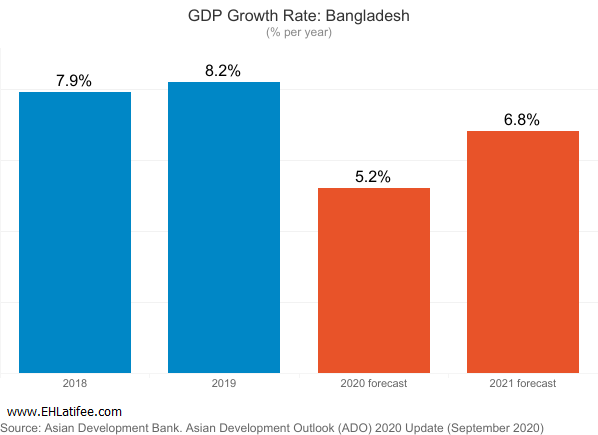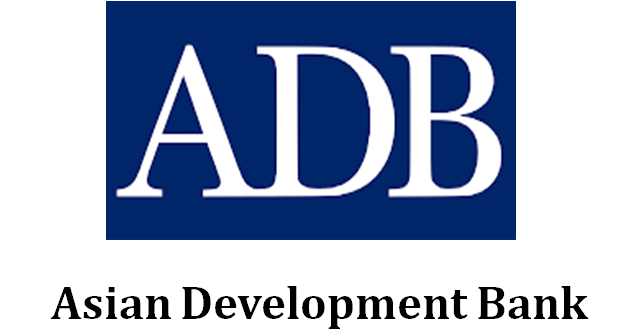Bangladesh economy has started recovering from the pandemic as prudent macroeconomic management and speedy implementation of the government stimulus measures are key imperatives to ensure the projected recovery of its economy, said the Asian Development Bank (ADB). “Bangladesh economy has started recovering from the pandemic.
Despite significant pressure on the health and pandemic management systems, the government has managed the economy well with appropriate economic stimulus and social protection measures, ensuring basic services and commodities for the poor and vulnerable,” said ADB Country Director Manmohan Parkash. Recent economic performance in exports and remittances, and government’s macroeconomic management including securing foreign funds for economic stimulus and social protection have made this recovery feasible, he said.
The ADB in its Asian Development Outlook (ADO) 2020 Update released today (15 September 2020) also said Bangladesh’s gross domestic product (GDP) is expected to grow by 6.8 percent in fiscal year (FY) 2021. The growth reflects gradual recovery, supported by a strong manufacturing base and strengthening of growth in export destinations. Inflation is expected to moderate to 5.5 percent and current account deficit to narrow to 1.1 percent of GDP in FY2021, the report projected.

The ADB said the main risk to this growth projection is a prolonged pandemic in Bangladesh or its export destinations. Parkash said, “We are encouraged by the increase in exports and remittances, and hope the recovery will be sustained, which will help in achieving the projected growth rate,” “Early access to vaccine and continued emphasis on health pandemic management can help sustain this recovery,” he added.
The ADB country director said this crisis is an opportunity to undertake further reforms in resource mobilization, export diversification, employment generation, skills development, as well as social protection; and ADB is working with the government in these areas to provide further support. ADB has already provided initial assistance of $600 million in loans and $4.4 million in grants for managing socio-economic impacts of the COVID-19 pandemic and supporting quick recovery. ADB has programmed $5.9 billion firm and $5.2 billion standby assistance for Bangladesh in 2021-2023. In FY2021, the government’s fiscal and monetary stimulus measures are expected to boost public and private investment, the report said.
The central bank’s expansionary and accommodative monetary policy is expected to aid the projected growth while keeping inflation contained, it said, adding that strong remittances will stimulate private consumption. Inflation is expected to stay at 5.5 percent in FY2021 reflecting a good crop outlook and favorable international commodity prices.
Consumer caution and underutilized production capacity should mitigate any upward pressure on prices from the government’s fiscal and monetary stimulus measures. In its 47-year-long partnership with Bangladesh, ADB has mobilized over $36.6 billion in loans and grants, including cofinancing, to help bring better infrastructure, public services, and social development outcomes to the people of Bangladesh. ADB’s current sovereign portfolio in Bangladesh has 49 projects with around $11 billion.
